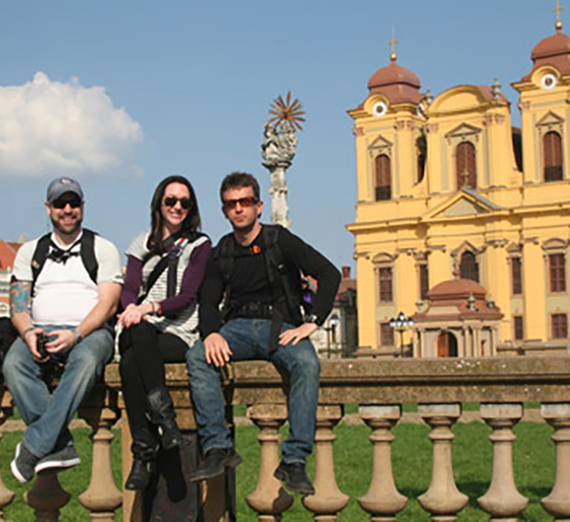Resilience in Romania

Four Gonzaga graduate students and their professor, Adrian Popa, submerged themselves last spring in an unusual academic experience. They accompanied Eritrean and Iraqi refugees through their first days in an emergency transit center operated in Romania by the United Nations High Commissioner on Refugees.
The month-long course, titled “Leadership and Accompaniment” is a pilot project in the graduate Organizational Leadership Studies program, but it was open to graduate students in Communications and Leadership Studies, as well. The course brought the students close to tragedies that most Americans see only on television: the loss of all possessions – even a native language; grieving when family members caught behind international borders; and the ability to feel happiness despite it all. The refugees will remain in the transit camp for some months, preparing for resettlement in either Europe or the United States.
As volunteer interns at the transit center, the students celebrated Easter with the refugees; they played soccer; and they helped familiarize the refugees with American-spoken English. Non-traditional student Chris Blakley found himself describing to the Eritreans why Americans have middle names. Tough, he said, but not as hard as explaining maiden names.
The students’ academic focus? To study the traits of hardiness and resilience among refugees and to write an ethnography of their observations. Blakley and the other students describe their experiences in Romania as life-changing.
“My knowledge about the current refugee situation has been overwhelming,” said student Caitlin Bletscher. “I would like the people of Spokane – or really, any city in the United States – to recognize the number of resettled refugees in their own backyards; to recognize their current hardships, their journey to the United States, and simply to know their stories. These stories have not only changed them, but will also change you.”
In July, Popa learned that two of the four students are returning to Romania to work with refugees throughout the fall semester. “I couldn’t ask for a more successful outcome,” he said.
